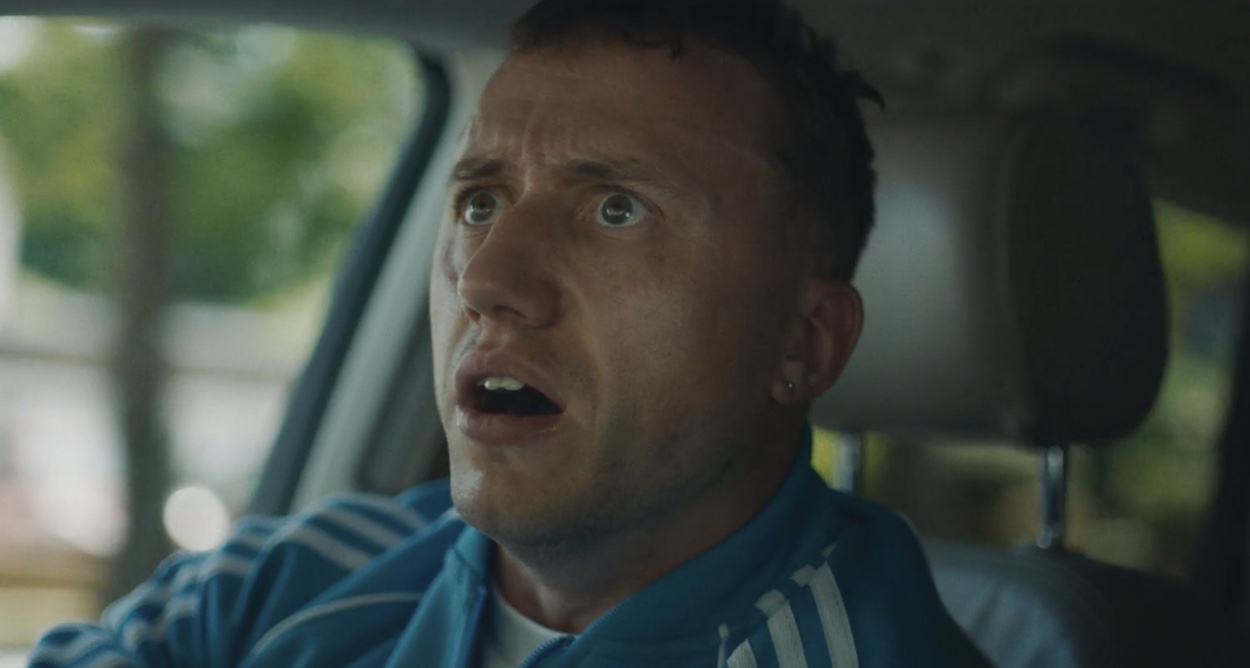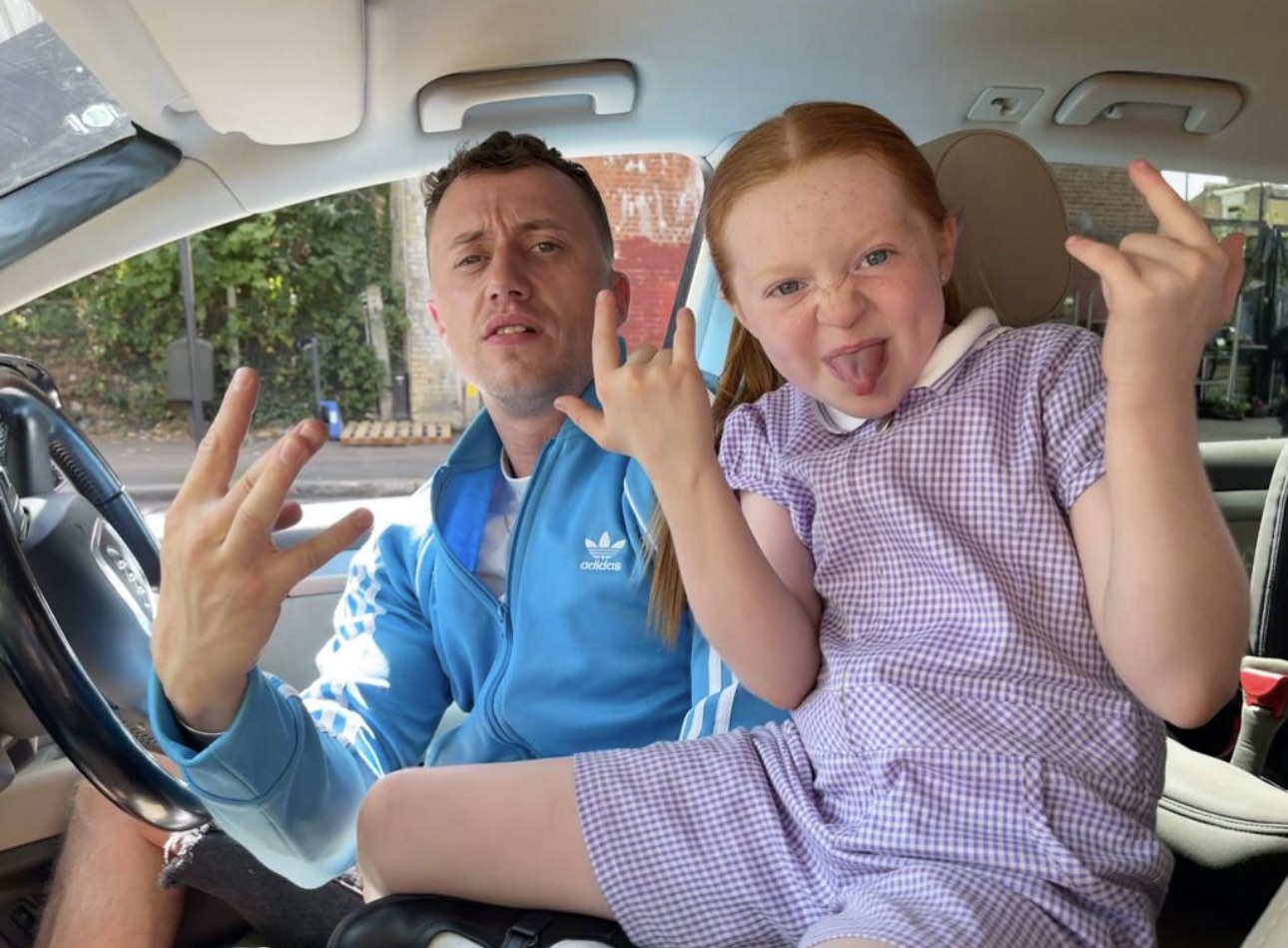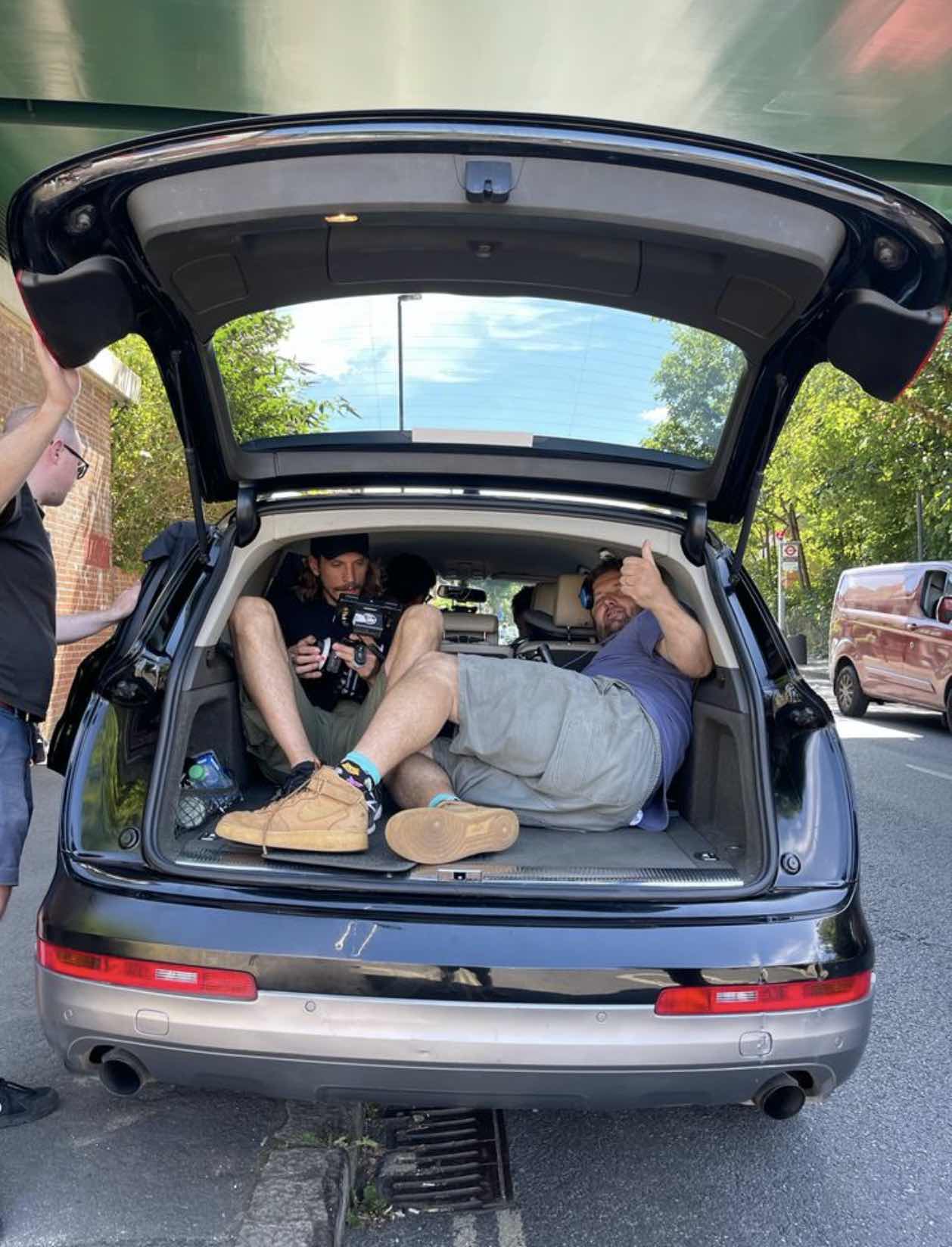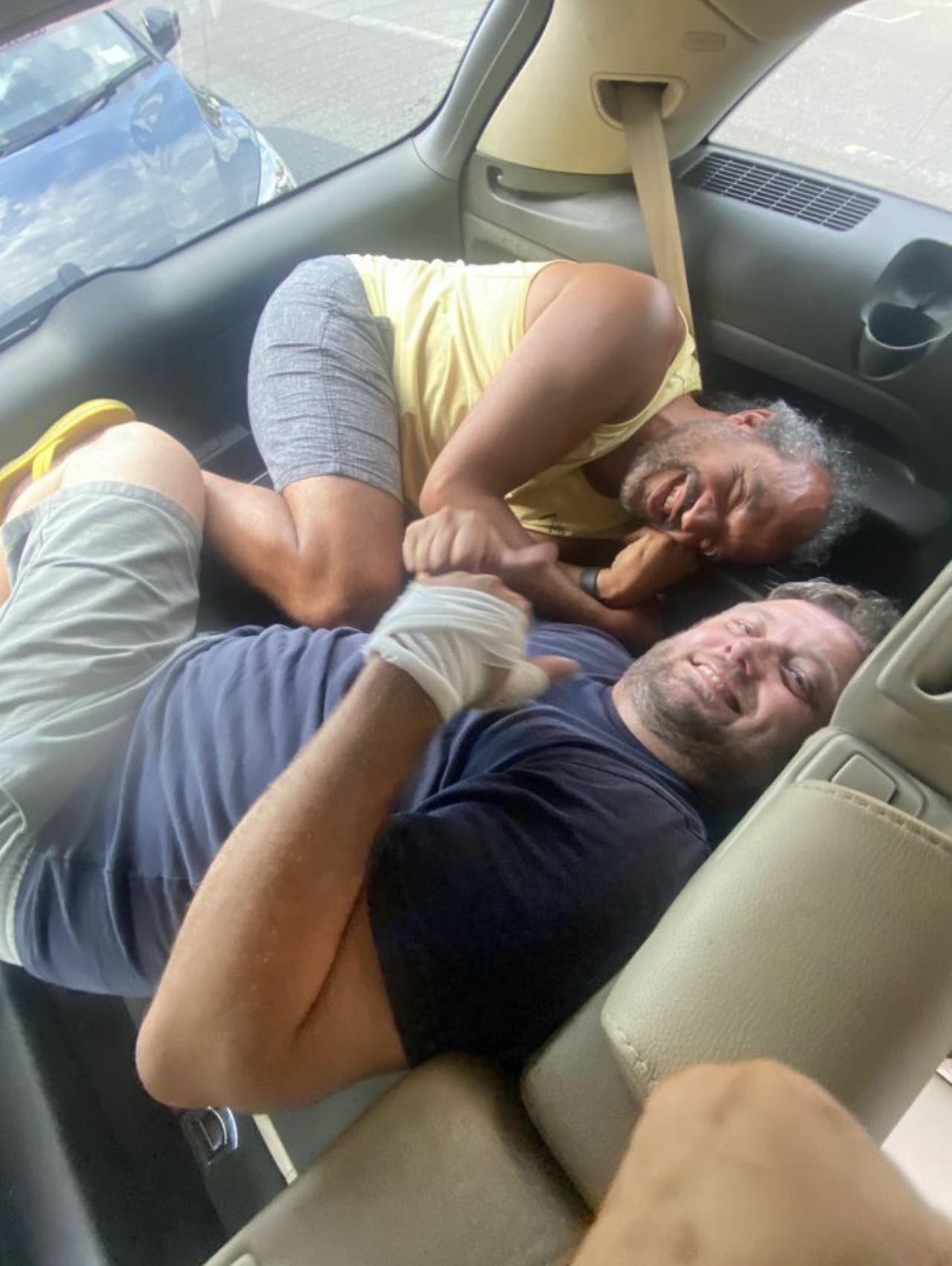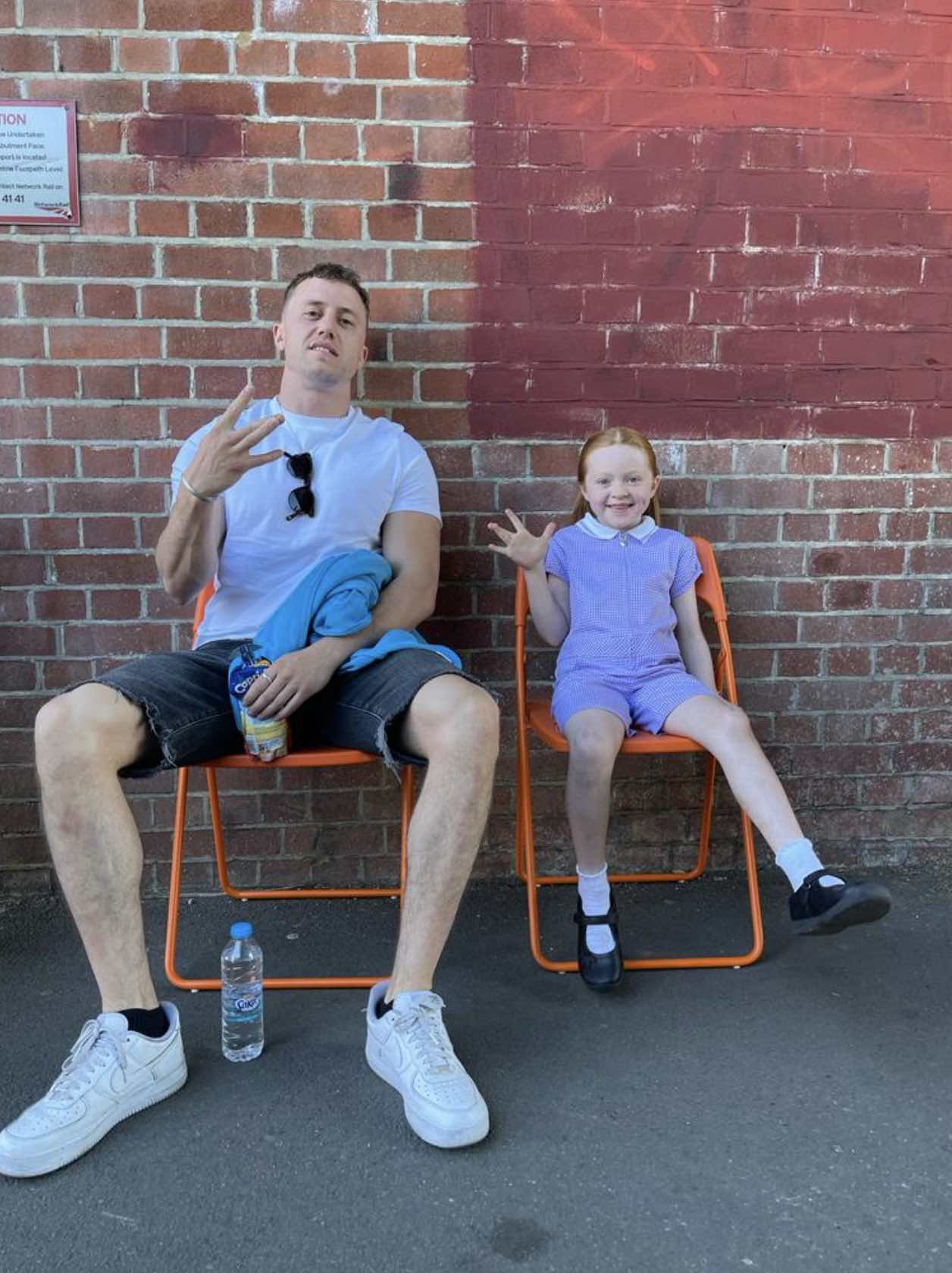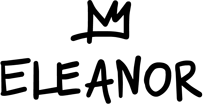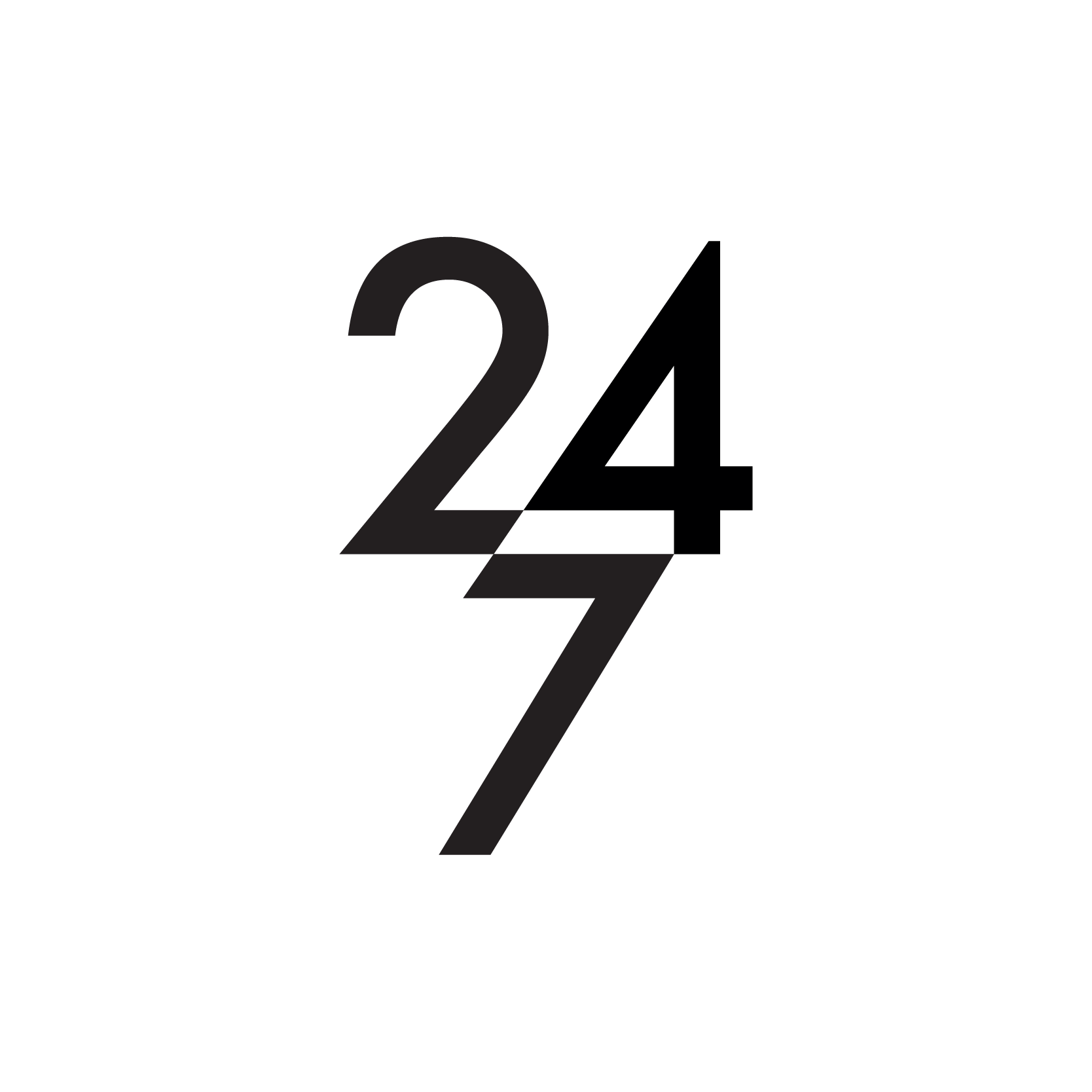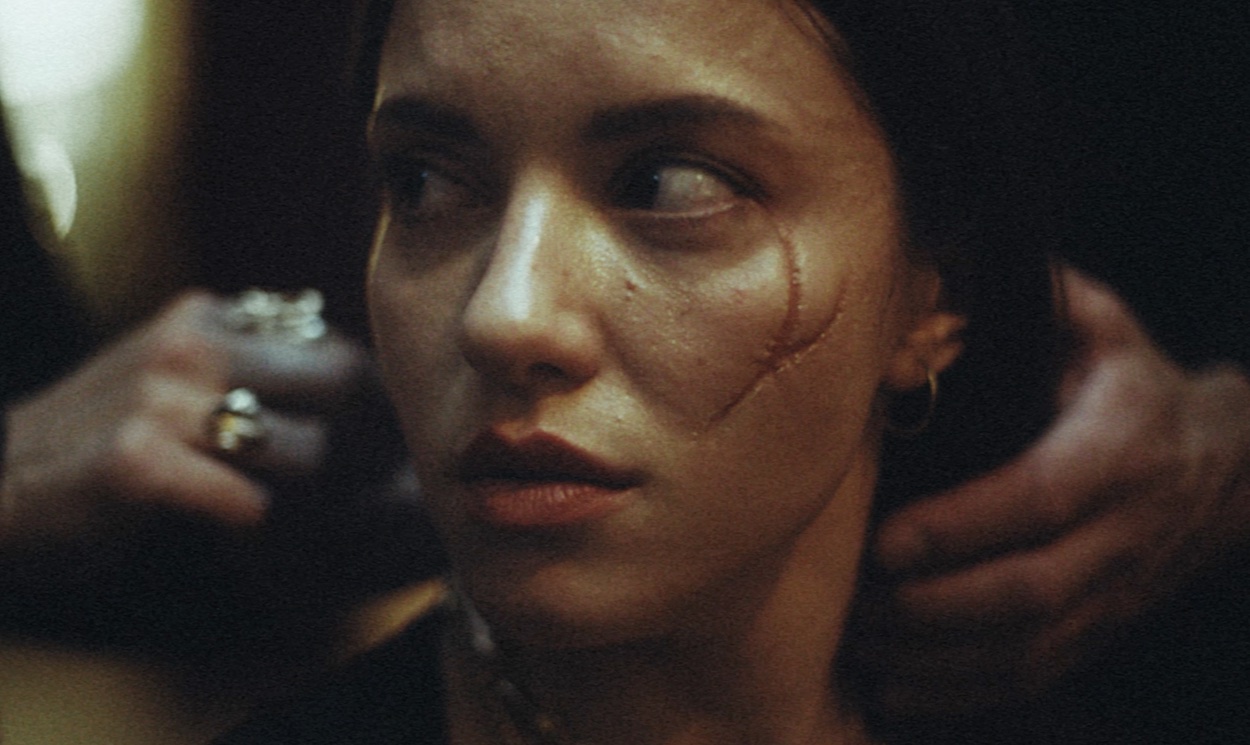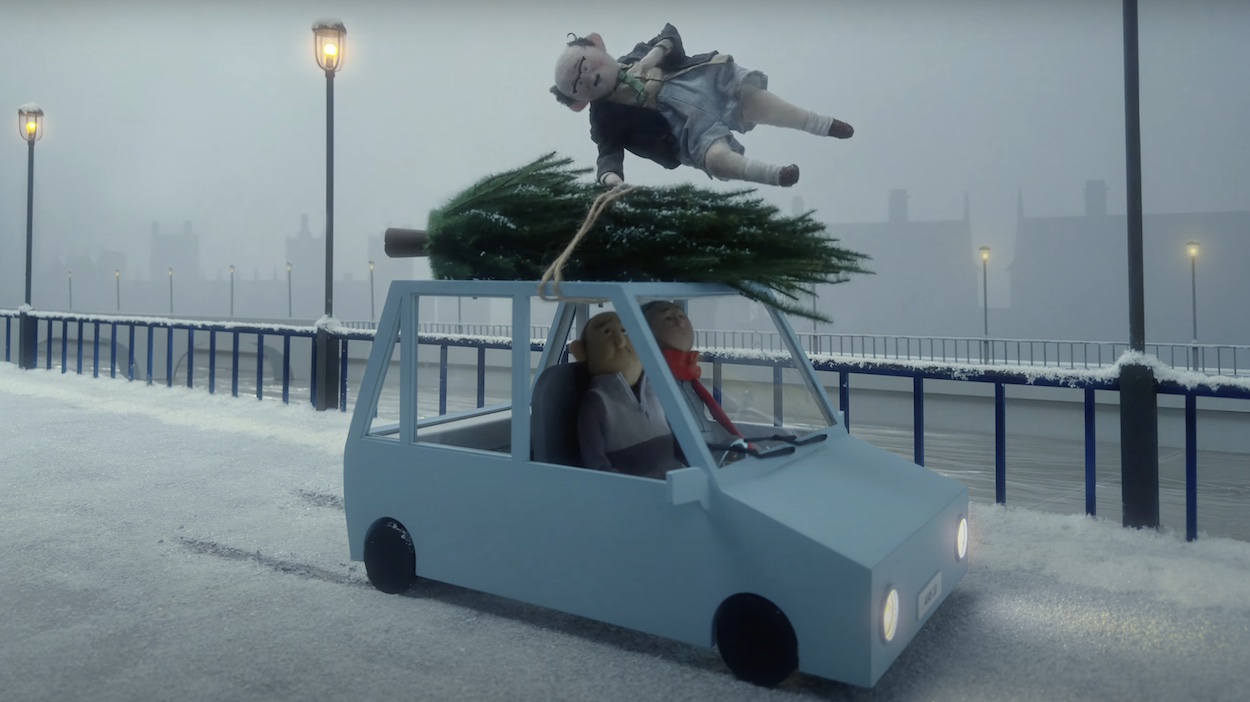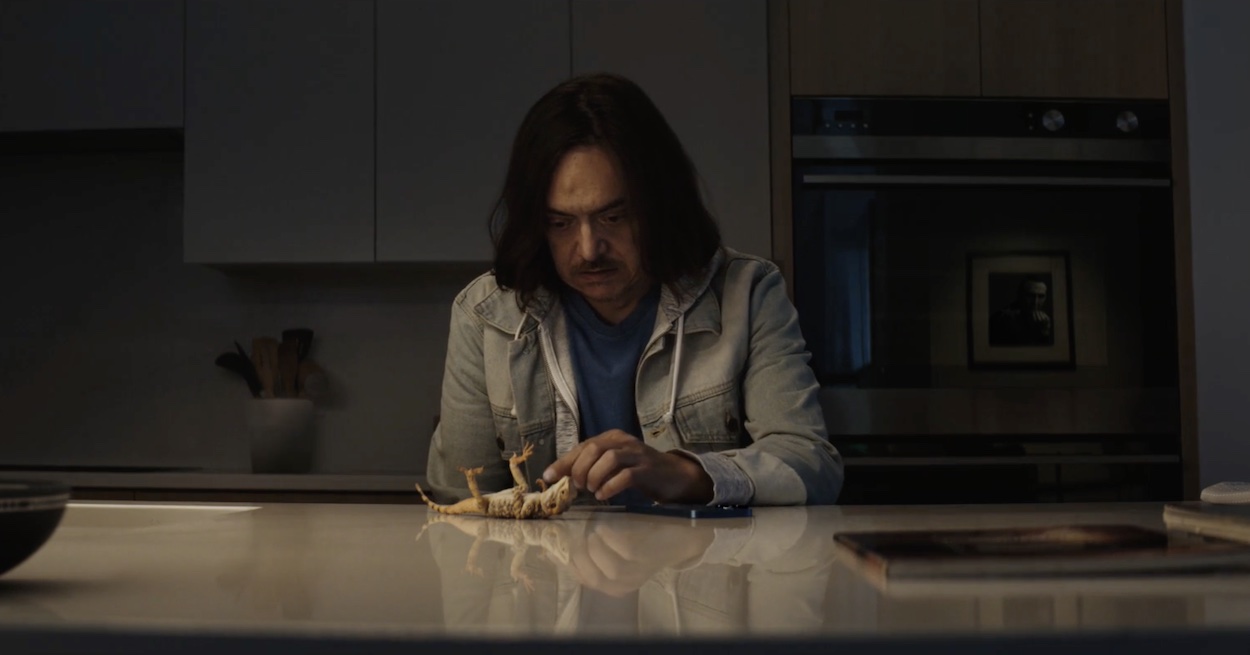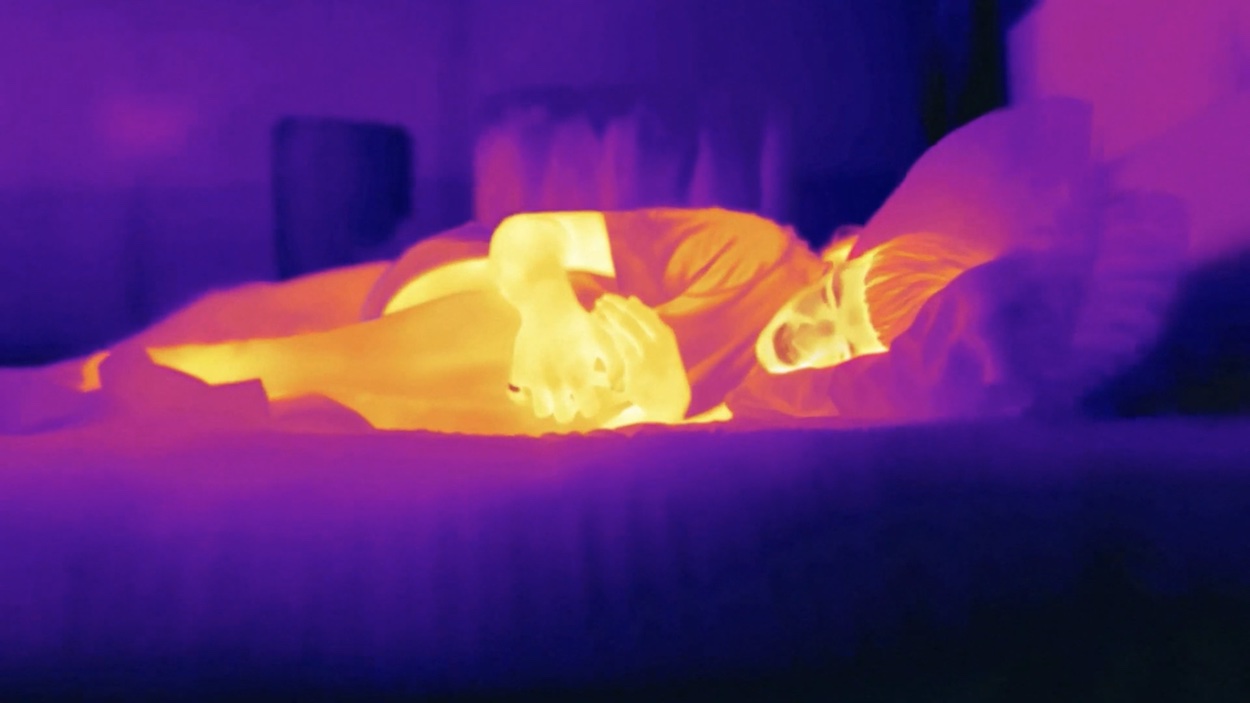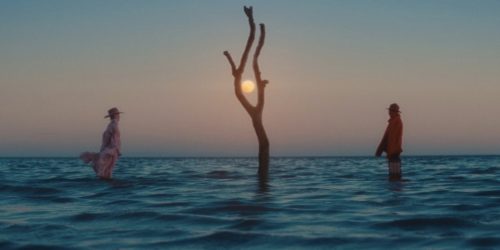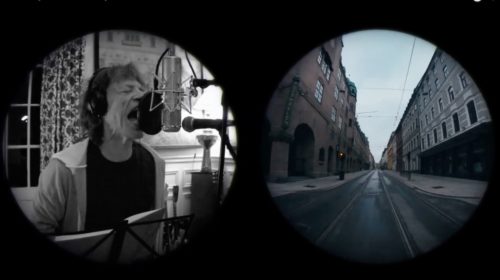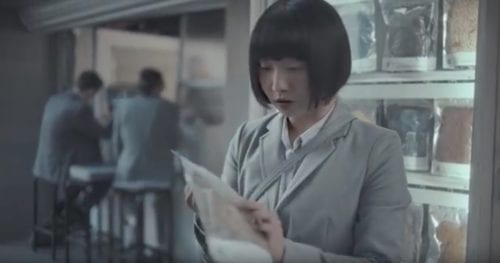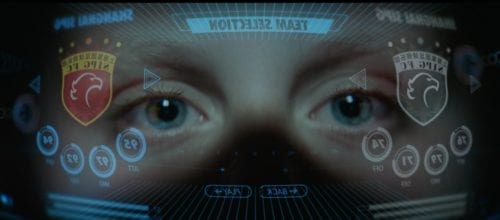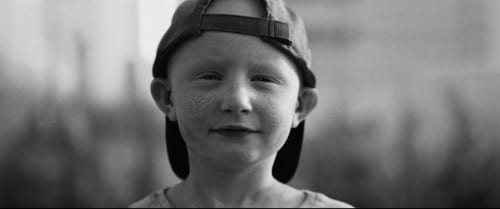Getting into character, Theo and Harriet
We absolutely love Small Change – it’s a masterclass in short film and how a simple premise is often the most effective. It’s one of those situations which is entirely credible because it’s been in the news before – was the idea inspired by a real-life event?
Yes! I had been trying to write a short for ages and had written loads of scripts, all of which fell over for different reasons, mainly because they were too long or complicated. Then as I was busily watching shorts and trying to learn about short film structure, I read this news story about a lad nicking a car, finding a kid in it and going back to tell the mum off. This struck me as the perfect simple spine around which to build a film.
Separately, I also had this fascinating character I wanted to bring to life on screen, based on a kid I used to work with in a young offenders’ institution. He was a care kid and had no family and no one ever hugged him or paid him any attention at all. He would commit crimes – in part because he wanted people to notice him and interact with him. If you nick a car and drive it around the centre of Swindon fast enough, you are guaranteed that someone will pay you some attention. He liked being held by the cops when they nicked him and would struggle so that they would hold their arms around him for a long time. He loved it when they looked him in the eye in an interview room – the only time anyone ever took him seriously or paid him attention. And, of course, he loved the routine of being locked up as many troubled kids do.
So I thought, if we put this lonely child criminal into this story about a distracted parent leaving her kid in the car, we could set up a chance to explore his lost childhood and build this interesting dynamic between a precocious middle class child and our emotionally starved adolescent, as well as allowing him to have a sort-of proxy conversation with his own mum when he takes the child back.
The performances by the two protagonists are equally brilliant, and you really buy into the characters in a very short space of time. How did you approach casting and getting authentic performances out of the actors?
If the child talent wasn’t amazing, the whole thing was gonna fall flat on its face. That was for sure. We started sending it out to all the best agents and of course tons of parents refused so we toned the swearing down a bit and changed the title (it was originally called ‘Fuck Fucking Fuck’). After that, we got a lot more tapes in. A lot of my casting decisions come from the heart, like it’s about whether I have a connection with the cast member and I feel like audiences will connect with them – as much as if they nail it in the first audition. But Harriet had both talent and human connection – she was just amazing from the get-go – she was brilliant and a lot of fun, and her parents were great which makes a big difference with child talent.
Casting the male lead was harder; we talked to a few big names. Everyone loved the script, but I don’t have much of a drama showreel, so there was some persuading to be done and a few rejections. But Theo was always near the top of my list. When you’re asking an actor who is a bit of a name like this to be in a short for next to nothing, you can’t audition them – you sort of lay the script at the altar of their talent and then take a deep breath and wait. In the end, Theo was perfect and he gave a lot on set, as well as really helping with Harriet.
If a kid in a film has an onscreen relationship with an adult, I always work really hard to get those two to be mates off camera, then that adult can support them on set. I can even direct the kid through their on-screen buddy or parent. This worked really well in this case. It’s all about stacking the odds in your favour and looking ahead to that time when the child is getting tired and giving yourself more tools to keep them engaged all the way through.
Having a happy set is a really big deal for me – my performance directing is based on building trusting relationships with my talent. I create a vibe where we’re all doing this together rather than they are working for me – this enables cast to own their characters and feel empowered to lift the whole thing with their own ideas and talent… it also suits the shoestring world of short film where no one is in it for the pay cheque!
Theo had only just learned to drive and of course we couldn’t afford a low loader, so he had to drive and act at the same time in that huge car, with no air con on the two hottest days in the history of the UK, so it was all a bit skin of our teeth! I was hiding in the boot directing the dialogue and we had to keep stopping in the shade to get the cast cooled down and shower everyone in ice cream, but we made it through! We gelled as a team, and I think that shows.
DP Luke Jacobs and Max Fisher
We liked the fact there was a twist on a twist – did you play with different endings or was the narrative arc fixed from the beginning?
I’m not totally sure. I think I found it while I was writing. I’m learning so much as I go on this journey with short film. I thought I understood structure, but of course this is a whole new world from commercials. I was bringing my commercials sensibility to bear on the script – always looking for ways for the film to be shorter, more concise. Could I do that story beat in two shots instead of four. Could it end sooner? But then that’s not really the point in drama, is it? In the end, we built the edit and then realized I needed to shoot more in order to make that ending really sing. So although I wrote that ending with him finding the monkey at around draft six, I didn’t make it really work until the very end of the edit process, after I’d been out to shoot pick-ups.
The brilliant Tim Thornton Allen cut it and he told me recently that he has a dozen sequences with titles like ‘This one is finished. Max is Happy’ and ‘Final Finished’ or ‘Final Final.’ ‘Final. Final. Final. This is it!’. He was very patient. All of this fine tuning and fiddling was about trying to make the ending work.
The short raises some interesting questions around morality and our ability to change (if only in small ways). What do you hope viewers take away from the film?
Really, I want people to be entertained and moved. I want them to think about childhood and loneliness. I guess for me, the emotional heart of the film is that look [the main character] gives the kid and her mum while they’re hugging at the end. That feeling of how much a parent’s love can mean – and what it might mean to be deprived of that – is really what it’s all about.
I wanted him to steal a precious well-worn child’s toy (the one in the film was actually my son’s treasured monkey) because I wanted to flag this idea of his lost childhood, and also create this morally ambiguous moment. So you like him because he connects with the toy, but also it’s a dick move to steal a child’s precious toy and then throw it in the road. Then towards the end we find that he has changed a little – not much, but enough to give himself room to connect with the monkey. But still it’s not exactly a moment of redemption, as he drives a twice-stolen car and connects with a precious toy he’s stolen from a baby, thrown away and then found by chance!
I like short stories where the change isn’t some monumental 180. We don’t totally change in a day – if we’re lucky an encounter or an event will just shift our lens a little. That feels authentic and engaging to me. I think the common thread in my work is heart: I want to find the good in people and in humanity. I want to tell stories which move and surprise and connect. I want to make films which bring us closer to the humanity in people and their stories and I hope this is one of those.
Bootcamp directing, producer Simon Alveranga and Max Fisher
Prior to filmmaking, you were a youth worker, a job that presumably requires a huge amount of empathy, emotional intelligence, and an ability to see the person, rather than the problem – gifts and experience that clearly carry across into work like ‘CALM: The Last Photo’. What have been the most valuable learnings you have brought with you into directing?
Building trusting relationships has always been a big part of my working method, going all the way back to my youth work days. Whether it was the kids or their carers or the staff in the prisons where they lived. Being brave, gaining trust and always leading with empathy are the big things I brought with me which are still main elements of my work. I like working in situations which require a leap of faith – trusting your heart and just taking a big leap is the route to the best work I reckon.
CALM was such an amazing project to work on. My own life has been touched by the issues raised in this film and I feel really strongly that advocacy is very important in the area of mental health. I brought in a casting team from the world of issues-based documentaries in order to give ourselves the best chance of finding those families and working with them very slowly and gently to get to the point where they would share their footage with us. I remember sitting in a young man’s bedroom chatting with his lovely mum as we looked through old photos and videos of him. It was heartbreaking but I was also moved by her strength.
One of the most powerful moments in the project was when we showed the families the film. They were all so proud and moved by the work – that was when I knew we’d got it right.
You seem like a director who has an eye for the small things, and an ability to find a new way of looking at the everyday. Is that where you find inspiration?
I get inspired by little moments. Often the heart of a person or a story can be found in just one look, or a little action which speaks volumes. I study people and am always watching and reading and trying to empathise, particularly in unexpected areas.
So, yes, I find my inspiration in the little ways that we show our true selves. I love that saying which is popular in observational documentary – that we want to peek behind the curtain. I’m excited by ways in which we can see past the obvious, and look at who people really are and what moments really mean. It can be the look that someone gives when they think the interview is over – which tells you more than all that they’ve said in the last hour.
What does the creative process look like for you? Do you tend to plan things out methodically or is it more intuitive and relaxed?
I do a lot of planning and working things up. I make animatics, shoot test material and generally interrogate everything really thoroughly before I move forward. I watch everything too – all the commercial work that comes out and as much film as I can, so that I’ve got lots of references and am ready to talk about what elements of a script work and which don’t.
Generally speaking, I’m a bit like a dog with a bone – once I get my teeth into something, it’s happening one way or another!
You started out making long-form before moving into commercials; are there any other genres or creative avenues you’re keen to explore in future projects?
To be honest, I feel like I’m still learning and improving my craft in ads. I love the very short form and I’ve found a bit of a groove this year in terms of landing at Rogue and shooting work which I’m really happy with, so that’s my big focus still. But I’m always plotting something new as well – I really love that space where authentic real stories cross over into drama, and I’m gearing up to shoot my next short in that style now. I’d love to have a try at shooting a feature film in the world of Fish Tank or Rocks – if an opportunity for something like that came up, I’d be all over it like a broken tent.
I also really miss the hands-on nature of my time as a youth worker, the dream would be to bring that world together with my filmmaking. Teaching young offenders and marginalised young people how to work on a film set and getting them to crew up and star in a film would be kind of amazing.
What are you working on at the moment?
I’m working on my next short film with my friend and producer, Simon Alveranga of Kash, who I made Small Change with. It is a comedy about grief. I’m loving writing it – and taking all the lessons from Small Change into it. I can imagine making short films could get quite addictive!
We’re also gearing up for a festival run with Small Change – we’re an official selection at the first three festivals we’ve heard back from so far, so we’re feeling hopeful about an exciting adventure to come touring with the film. I’ve just finished a lovely Christmas ad which I shot in Tobago, and am always pitching, of course, plus spending time with my three tiny kids.
Interview by Selena Schleh
@roguefilms
@editedbytta
Rogue Films website
